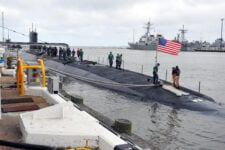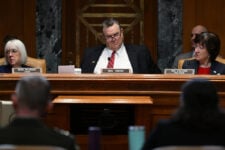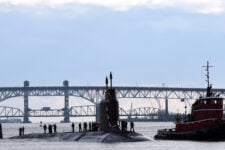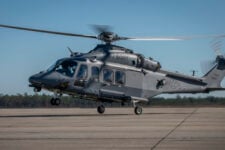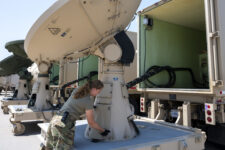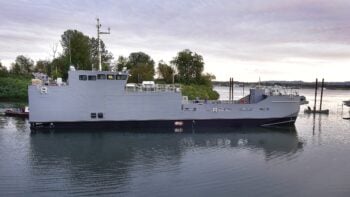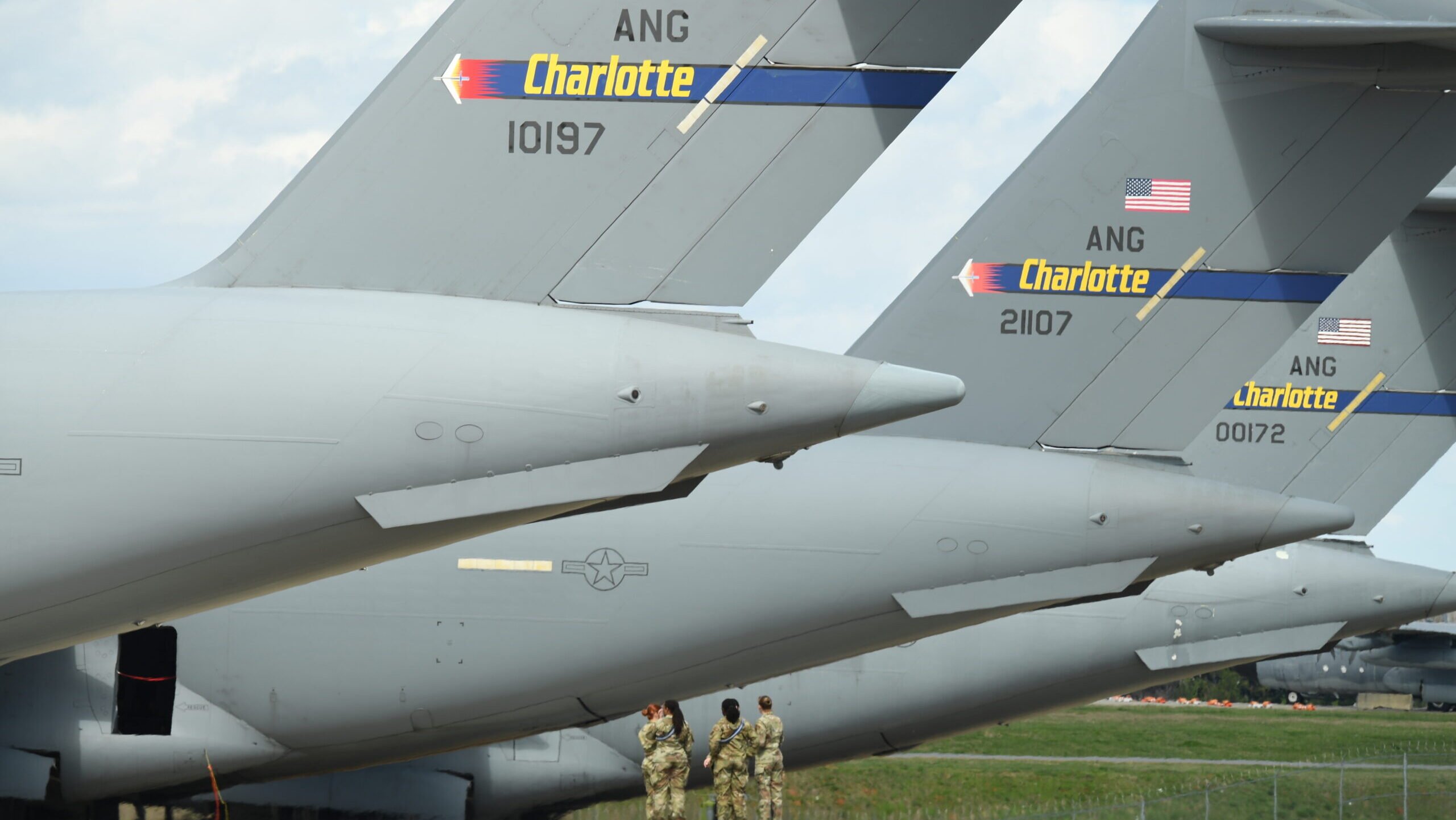
North Carolina Air National Guardsmen approach a recently parked C-17 Globemaster III aircraft following its landing during a readiness exercise at the Charlotte-Douglas International Airport base, Mar. 16, 2024 (U.S. Air National Guard photo by Tech. Sgt. Laura J. Tickle)
WASHINGTON — A proposed transfer of Air National Guard space units into the Space Force will not set a precedent that will allow other services to absorb portions of the Guard, the Air Force’s top leader said today.
The Defense Department on March 29 delivered a legislative proposal to Congress detailing the move, which would require Congress to override existing law that mandates a governor’s approval for changes to a Guard unit. Air Force Secretary Frank Kendall told lawmakers the proposed transfer would involve around 700 Guard members, who will eventually settle into roles in the Space Force.
“This [issue] is an artifact of the creation of the Space Force,” he told members of the Senate Appropriations Committee’s defense subpanel. “It’s a unique situation. There’s absolutely no intention to make any other changes, moving things out of the Guard.”
The discussion — held during the first of the Department of the Air Force’s budgetary posture hearings in front of congressional defense committees — tees up yet another debate over the question of a Space National Guard, a prospect Space Force leaders continue to oppose on the grounds that its small number of members could not legitimize a separate organization.
During similar debates last year, National Guard Bureau Chief Gen. Daniel Hokanson told lawmakers that folding space-related jobs now undertaken by the Air National Guard into the Space Force will cost $1 billion and add years of additional training that would harm readiness, instead advocating for the creation of a Space National Guard.
The House Armed Services Committee included language that would authorize the creation of a Space National Guard in its draft of the fiscal 2024 National Defense Authorization Act, but the provision did not make the final bill approved by both the House and Senate and signed into law. Instead, the enacted NDAA sanctioned a hybrid work model for the Space Force that would allow Guardians to switch between full-time and part-time jobs, according to Air Force Times.
Sen. Susan Collins, R-Maine, was first to press Space Force leaders today about the proposed force structure changes. Later, Lisa Murkowski, R-Alaska, asked officials about a recent poll where she said more than 50 percent of 200 Air National Guard space operators indicated they would not transfer to the active-duty Space Force.
“The concern here, of course, is that you’re going to have an impact on our mission, on our preparedness. Seems to me you’re potentially taking on a lot of risk there,” she said. “Wouldn’t it be easier to transition these units and personnel to a Space National Guard?”
Chief of Space Operations Gen. Chance Saltzman responded that the creation of a Space National Guard would result in increases in administrative funding needed to upkeep two separate bureaucratic organizations.
“Every mission that is currently in the Space Force has come from another service or another military organization. So all we’ve been doing for the last four years is managing that transition risk,” he said, adding that the Space Force added space operators from the Army and Navy in recent years “seamlessly, without any gaps” in capability.
Under the Defense Department’s proposed changes, the affected Air National Guard members would serve under the same units with “basically the same conditions” in terms of benefits and in either full-time or part-time roles, Kendall said. He added that the Space Force is preparing a report to Congress on the proposal and has begun briefing it to stakeholders.
“It’s awkward, the current arrangement,” he added. “We’ve made it work for almost over four years, now. And we can continue to make it work. But it’s not ideal by any means.”

